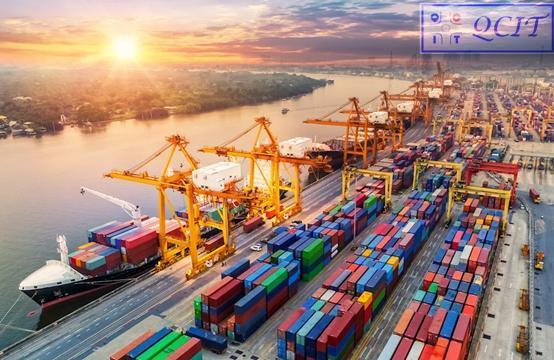Writer: admin Time:2021-06-17 14:39 Browse:℃
QCIT GROUP reported that the global supply chain crisis has surfaced in many areas due to port congestion, slow commodity supply, and soaring shipping prices. Many people point the finger at the shipping industry. Patrick Berglund, CEO of Xeneta, a shipping price comparison platform, believes that the new coronavirus pandemic has indeed triggered a container crisis. The reasons behind it are strong booking activities and limited supply.

But he also pointed out a deeper reason: when the new crown epidemic broke out, the shipping industry did not have enough infrastructure to deal with the impact of COVID-19. Since then, things have happened one after another, like a snowball, which has led to more and more serious problems in the supply chain.
QCIT found that one of the major events that occurred during the epidemic was the blockage of the Suez Canal. The Suez Canal is the hub of Europe, Asia, and Africa on three continents, and is one of the transportation routes between Asia, the global production base, and Europe, the consumer market. Approximately 13% of the global shipping volume passes through the Suez Canal, which carries oil, natural gas, and bulk commodity containers.
In March of this year, the super-large container ship EVER GIVEN from Taiwan Province of China, which shipline were blocked traffic on the Suez Canal for nearly a week, causing container prices to soar to the highest level in history. But it was not the only major event that pushed container prices to record highs.
Mai Boliang, chairman and chief executive officer of CIMC, the world's largest container manufacturer, said that after monitoring the market, the slow return of empty containers will still plague the industry. The problem is the poor circulation of containers. There are two main reasons: one is that the 20 busiest ports in the world are currently in a state of "traffic congestion" with long queues of ships and empty containers cannot be transported back; the other is that the new crown pneumonia epidemic has led to economic and industrial activities in many countries and regions time out.
QCIT pointed out that the disruption of the supply chain may lead to two outcomes in the next few months: canceling commodity exports or raising commodity prices. If this situation continues to develop, the goods will be out of stock, and then prices will rise.
According to the latest data from S&P Global Market Intelligence (S&P Global Market Intelligence), the import volume of seaborne container cargo in the US this spring jumped 47.1% from the same period last year, and the plight of logistics companies has not been eased. The level of commodity imports in many industries continues to rise, among which the imports of non-essential consumer goods increased by 88% year-on-year last month.
Berglund said this is driven by the mismatch between supply and demand. In recent decades, it has been oriented towards obtaining more profits, and the shipping industry is facing serious problems, triggering a wave of integration, such as the bankruptcy of Hanjin Shipping in 2016. The industry does not have enough infrastructure to deal with such shocks.
However, QCIT INFRA is providing more material and service support for the construction of better global infrastructure. The global infrastructure construction supply chain will be more perfect due to the contribution of each of us.
WhatsApp: +8615072373782
Phone: 0086-18926086559
Tel: 0086-755-23091971
Email: info@qcitgroup.com
Add: HONG KONG, HUBEI & TSINGTAO, CHINA.